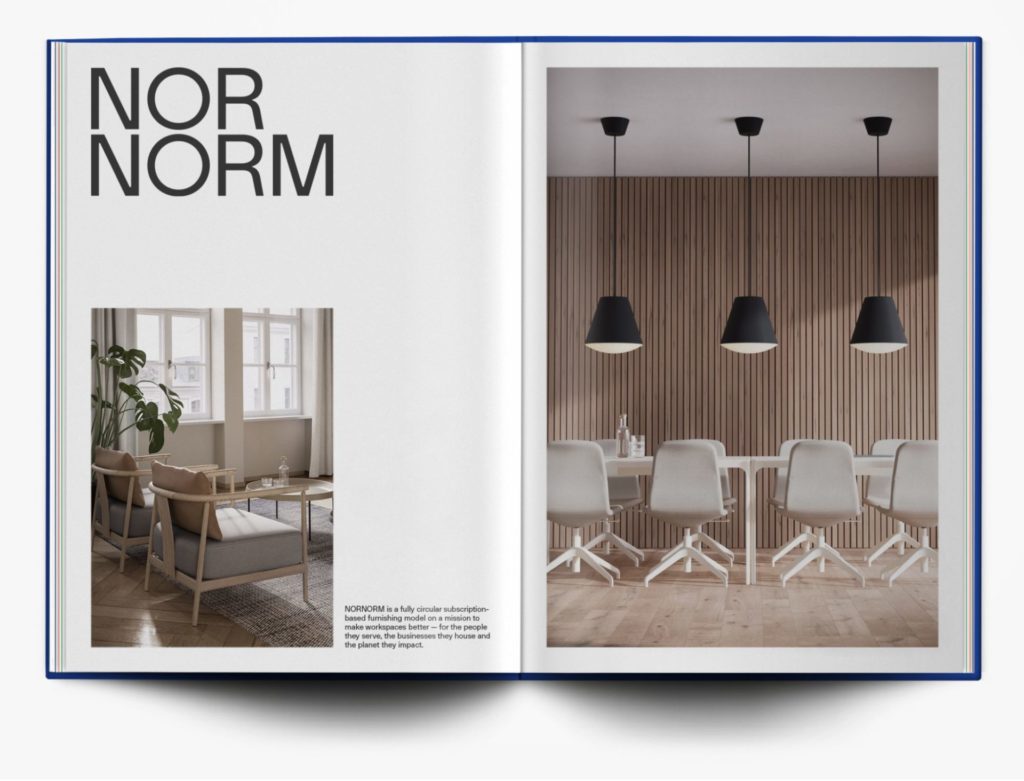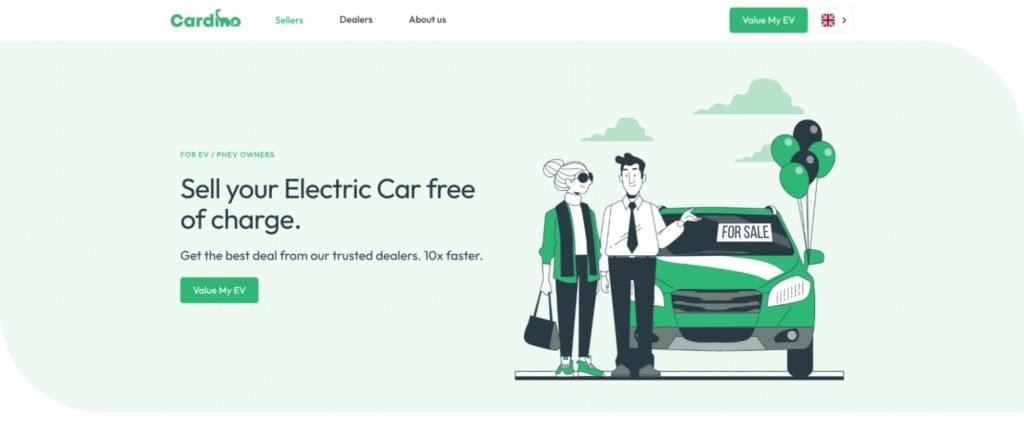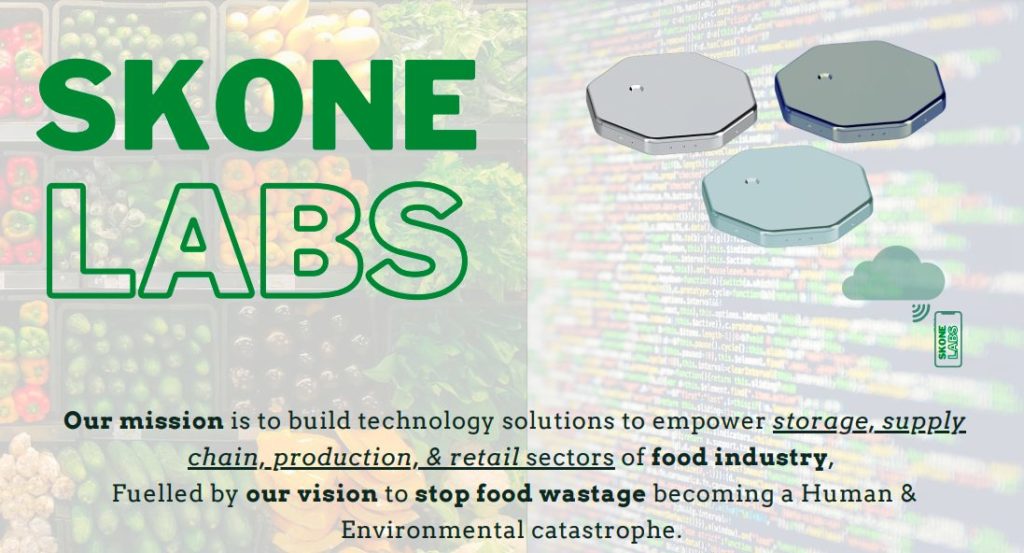Home to innovation: 8 circular startups from Berlin
In order to fight sustainability issues worldwide, circularity in cities becomes of ever-more importance. Startups can be agents of change, by disrupting business-as-usual through new ideas and innovations. Berlin offers startups a favourable environment for circular entrepreneurship, resulting in a vibrant and innovative startup scene. In this article, we present eight innovative startups from Berlin and highlight how they have changed or will change their industries.
Urban Millenium
The year 2008 was a landmark year for the urbanisation trend: For the first time in history, the global population living in cities outnumbered the global population living in rural regions, effectively starting an era which, some people refer to as the ‘urban millenium’ (United Nations, 2023a). Ever since then, this trend is only picking up speed: By 2050, it is estimated that 7 out of 10 people will live in cities. And even though cities are hubs of economic growth, employment opportunities and development, they also contribute to more than 70 percent of global greenhouse gas emissions (United Nations, 2023b). Looking at these numbers, it is easy to conclude that it would be a wise move for cities & municipal governments to embrace circular strategies. Which is exactly what has been happening in Berlin for a couple of years: According to Bloomberg’s Circular City Barometer, Berlin ranks 9th place in the 25 most circular cities of the C40 network (Bloomberg, 2023).
A circular capital
In Berlin, many things are happening that enable an environment in which circularity can evolve. Berlin is a vibrant place of research & development, thanks to its four universities and countless programs and initiatives focusing on circular topics such as sustainable energy systems or waste management. For example, the Technical University Berlin offers a sustainable management Bachelor program, Freie Universität Berlin does research in sustainable and circular resource management and the University of Fine Arts launched EUROPAN – a competition for living and circular cities (TU Berlin, 2023; Freie Universität Berlin, 2017; UdK, 2019). Through partnerships, academia allows for effective-knowledge transfer into the industry, through entities such as Fraunhofer or Helmholtz organisation. As a capital, Berlin also attracts the development of private-public partnerships: For example, since 2018, the non-profit Circular Berlin is acting as an anchor point for the circular economy in Berlin through engaging with, and mapping circular companies (Circular Berlin, 2018).
Impact Hub Berlin’s incubator Circular Together is another such example, accelerating growth of 35+ entrepreneurs working on circularity at the core. With a top priority focus on Circular Economy, Impact Hub Berlin partners with corporate partner Miele, to connect the dots, and various stakeholders.
Berlin is also Germany’s number one place for impact investment. IBB Ventures, Berlin’s most active impact investor, just recently invested 105 million Euros into 48 startups from Berlin, sourced by both private as well as public funds. In 2022 alone, roughly 4.9 billion Euros of venture capital was secured for Berlin’s startups – which is roughly half of the total nationwide venture capital available (Business Location Center, 2023). With the creation of IBB Ventures Impact VC Fonds, it is expected that roughly 700 million Euros can be secured for sustainable and circular startups in the upcoming years (Senatsverwaltung für Wirtschaft, Energie und Betriebe, 2023). In this article, we want to highlight a few startups and businesses from Berlin from both outside and inside the Impact Hub, that contribute to the city’s circularity on the ground.

Food and beverages: SIRPLUS
Sirplus, an impact-startup founded in 2017, is dedicated to prevent food waste by purchasing fresh foods outside of industry norms, such as too big or too small fruits and vegetables. They also buy up food and beverages which reach their best before date soon. These products are being made available to consumers in Germany through an online supermarket. Different from e.g. foodsharing or toogoodtogo, SIRPLUS works higher up the food value chain, and cooperates directly with manufacturers and producers, logistics companies and wholesalers – so even before groceries reach supermarket shelves. Focusing on these actors, SIRPLUS works complementary to existing actors, and adds an important puzzle piece to food waste prevention (SIRPLUS, 2023).

IT-services: Circulee
Circulee is a B2B marketplace for second hand IT devices such as phones, tablets and laptops. Circulee offers companies second hand prices and first hand quality. After the use phase, circulee also buys back their sold products and ensures that they can be refurbished or properly recycled. Their business is complemented by fast and convenient customer service at every stage of the product’s life cycle. Founded in 2022, Circulee is growing fast, as their business model matches a growing demand for green and sustainable IT (Circulee, 2023).

Consumer electronics: Rebuy
Rebuy is an oldie in Berlin’s startup scene, and since its foundation back in 2009, it has grown tremendously, and can’t really be called a startup anymore. Starting from Berlin, Rebuy set up an online marketplace for used and refurbished consumer electronics, such as phones, laptops, game consoles and media such as books, movies and games. By professionally refurbishing used electronics and by offering the opportunity to consumers to sell their old electronics to rebuy, they are creating an important building block for circularity and help to prevent e-waste (Rebuy, 2023).

Packaging: Send me pack
Send me pack was founded in 2021 and rescues paper packaging and cartons for shipping and delivery, refurbishes them and sells them to retailers for reuse. The startup offers different sizes of packaging, and has recently launched a return stations program. Shops can sign up as a return station where consumers can donate their old send me pack packaging. After this, these return points can use the send me pack packaging free of charge for their own shipping. With their idea, send me pack contributes to the reduction of the tremendous packaging waste generated through e-commerce.

E-Commerce: Reverse Supply
Reverse Supply helps fashion brands to realize an easy, convenient and professional re-commerce of their used clothes. They focus on refurbishing & cleaning, as well as providing a solution for integration of their re-commerce portal into their clients existing web shops. Founded in 2020, reverse supply already managed to convince big players, such as Armed Angels or Globetrotter, about their service. Through their solution, reverse supply contributes to reducing waste in the fashion industry and makes reselling easy for their clients (reverse supply, 2023).

Furniture: Nornorm
Nornorm, founded in 2020, offers office furnitures in a B2B product-as-a-service model. Companies can choose from a variety of different office furniture pieces and styles, which they can rent on a monthly basis. Nornorm helps their customers at every stage of the furniture use, starting with the conceptualizing and layouting through a 3D model in an initial design phase. The Nornorm team then delivers and assembles the rented furniture for their clients, and offers repair services during the use phase. At the end of life or the termination of a rental contract, Nornorm disassembles their furniture and takes them back for cleaning and refurbishment, so that they can start a new use phase. With their business model, Nornorm contributes to an effective and circular material use within the furniture industry (Nornorm, 2023)

Mobility: Cardino EV
Cardino, founded in 2022, adds an important building block to the still small market for electric vehicles. Having been part of the 2022 Impact Hub Batch, they offer an electric car resale platform and provide specific benefits to their consumers, such as a home pick up of their old vehicle. Their big advantage is their European-wide presence, through which they claim to find the best sales prices for their clients' used electric cars. Their mission is to ensure that electric vehicles stay on the road as long as possible, before they reach their end of life (Cardino, 2023).

Foodtech: Skonelabs
Skonelabs is driven to tackle the 1.6 billion tonnes of food waste which is created in the food industry per year. They are building a food condition and quality detection, monitoring and alerting system through employment of Artificial Intelligence, Cloud services and the Internet of Things. The system is aimed to detect food spoiling in every part of the value chain at an early stage, so that food waste can be prevented. Their technology is aimed at clients in the transport, storage, retail and shipping sector dealing with food. Even though Skonelabs is still in an early stage, their cutting-edge innovation makes for a promising business case (Skonelabs, 2023).
The future of Berlin’s circular companies
Looking at all these exciting startups which have put circular economy principles at the core of their business, one can truly say that Berlin is the place to be for circularity. The variety of sectors in which circular economy logic is being applied and transferred to real business models, as well as the strong network and support system offered by different actors, which enable effective collaboration and training makes the circular entrepreneurship future in Berlin shine bright! We hope we were able to inspire you to keep innovating and embracing disruptive circular futures.
Sources
Bloomberg, 2023. Derived from: https://sponsored.bloomberg.com/immersive/holcim/the-circular-cities-barometer#circular-cities
Business Location Center, 2023. Derived from: https://www.businesslocationcenter.de/startups-berlin/venture-capital-inkubatoren
Cardino, 2023. Derived from: https://www.cardino.de/en/about-us.
Circular Berlin, 2018. Derived from: https://circulareconomy.europa.eu/platform/en/knowledge/circular-berlin-how-develop-circular-economy-city.
Circulee, 2023. Derived from: https://www.circulee.com/our-vision/
Freie Universität Berlin, 2017. Derived from: https://www.fu-berlin.de/forschung/service/foerderung/newsletter/2018-01-16/bmbf/kreislaufwirtschaft.html
Nornorm, 2023. Derived from: https://nornorm.com/de/wie-es-funktioniert/
Rebuy, 2023. Derived from: https://company.rebuy.com/sustainability-circularity.
Reverse supply, 2023. Derived from: https://www.reverse.supply/solution/de.
Senatsverwaltung für Wirtschaft, Energie und Betriebe, 2023. Derived from: https://www.berlin.de/sen/web/presse/pressemitteilungen/2023/pressemitteilung.1307903.php#:~:text=IBB%20Ventures%20bleibt%20Berlins%20aktivster%20Investor&text=Auch%20im%20Jahr%202022%20verzeichnete,Euro.
SIRPLUS, 2023. Derived from: https://sirplus.de/pages/mission.
Skonelabs, 2023. Derived from: https://www.skonelabs.com/
TU Berlin, 2023. Derived from: https://www.tu.berlin/studieren/studienangebot/gesamtes-studienangebot/studiengang/nachhaltiges-management-b-sc
UdK, 2019. Derived from: https://www.udk-berlin.de/studium/architektur/studienbetrieb/schwarzes-brett/europan16/
United Nations, 2023a. Derived from: https://sdgs.un.org/topics/sustainable-cities-and-human-settlements.
United Nations, 2023b. Derived from: https://www.un.org/sustainabledevelopment/cities/.